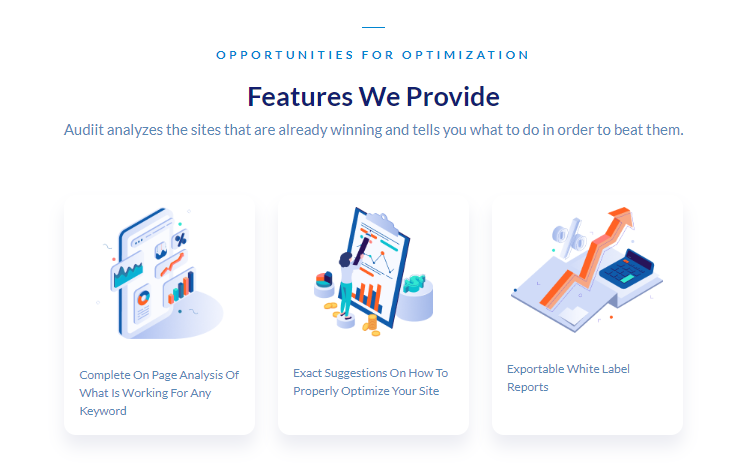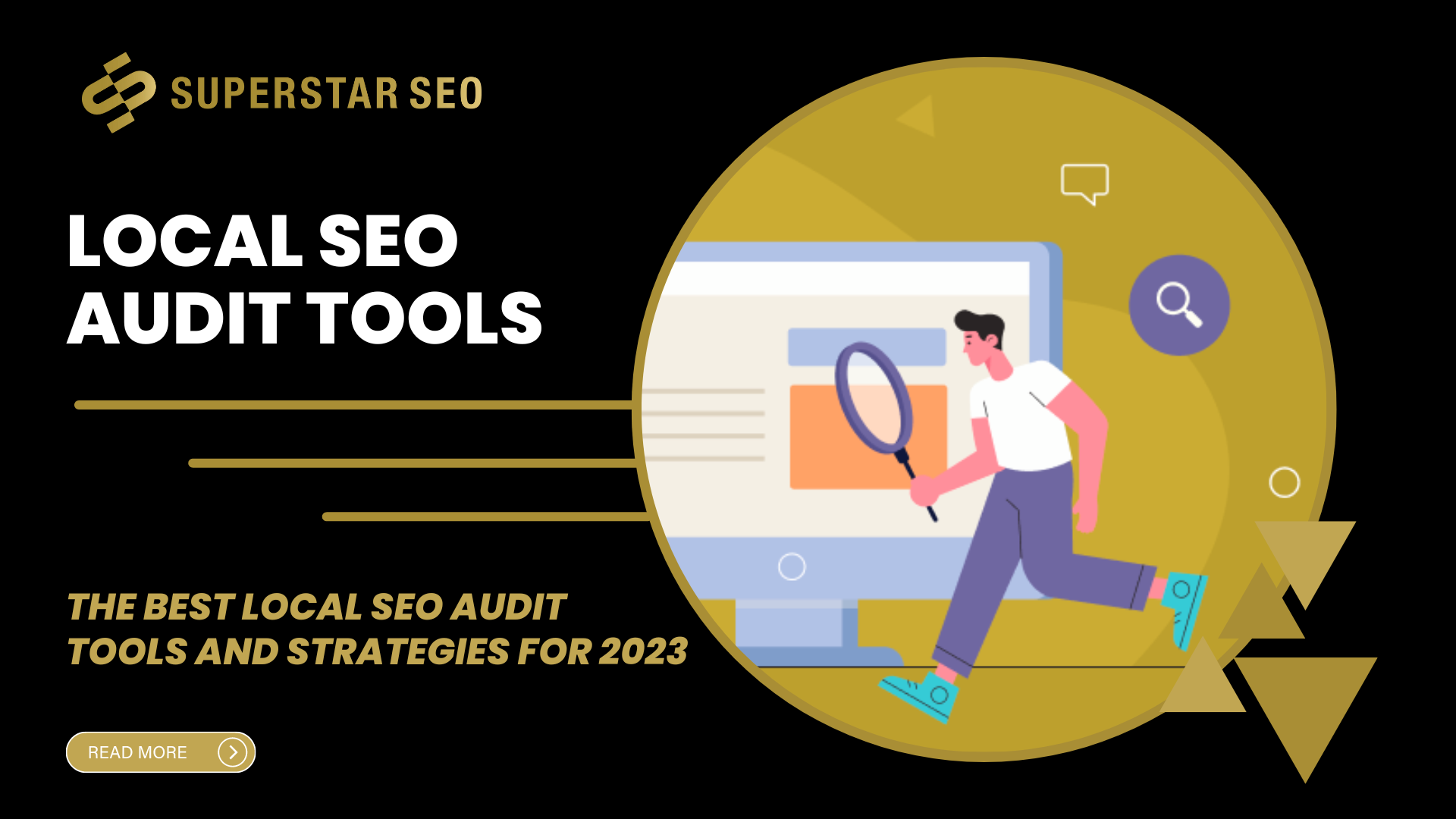The Best Local SEO Audit Tools and Strategies for 2024
Search engine optimization (SEO) is an essential part of any successful digital marketing strategy. It’s no different when it comes to local SEO, which is why conducting a local SEO audit helps local businesses of all sizes.
It involves analyzing various aspects of your website to ensure you meet all the requirements to rank on local search engine results pages.
In this blog post, we’ll discuss the best local SEO audit tools and strategies for 2024 to help you get the most out of your local SEO efforts.
A Local SEO Audit Checklist
1. Manage Your Google Business Profile
Having an optimized and properly managed Google Business Profile is essential to performing a successful local SEO audit.
This free local SEO audit checklist should start with making sure your business profile has all the required information, including your business name, address, phone number, website link, images, and reviews.

Additionally, Google Business Profile (GBP) is important to use relevant keywords in the description of your business that accurately describe what your company offers.
Optimizing your business profile not only boosts your local search rankings but also enhances your visibility on Google Maps, helping customers easily find your physical location.
Once these details are correct and up-to-date, you can use local SEO audit tools to further analyze your profile.
For example, you can identify opportunities to further optimize your profile with targeted keywords or explore competitor profiles to see how you measure up.
2. Examine Your Keyword Targeting
One of the most important things to consider when conducting a local SEO audit is keyword targeting.
Proper keyword targeting can help improve your organic search visibility in organic search results and drive more traffic to your website.
To examine your keyword targeting, you need to analyze the local SEO keywords you are currently targeting and assess how they are performing.
One of the best tools you can use to examine keyword targeting is Google Search Console.
This platform allows you to see which keywords are driving the most traffic to your website and what kind of search engine results pages (SERPs) these keywords are generating.
Additionally, you can use Audiit.io, which helps you complete an on-page analysis of what is working for any keyword for sites that are already winning in SERPs and what you need to do to beat them.

If necessary, make changes to your keyword strategy so that you are targeting keywords with higher search volumes or that better match your business offerings.
It is also important to note any potential long-tail keywords or phrases that could lead to increased organic search traffic.
3. Inspect Backlinks
An important part of any local SEO audit is to inspect your backlinks.
This involves evaluating the quality and quantity of inbound links that point to your site.
It’s important to analyze the anchor text used in backlinks, as well as the websites they come from.
Low-quality backlinks can hurt your website’s ranking and reputation, so it’s important to audit them regularly.
When you inspect your backlinks, use local SEO audit tools to identify any low-quality or spammy links pointing to your website.
In addition, look for any broken links and consider disavowing those links if needed.

Keeping track of your backlinks will help you ensure your website stays within Google’s guidelines for link building.
4. Local Business Citation Analysis
Another essential aspect of a local SEO audit is performing a local business citation analysis. Citations are online mentions of your business name, address, and phone number (NAP) on other websites.
Ensure that your NAP information is consistent across all online listings, directories, and citations. Inconsistent information can confuse search engines and harm your local search rankings.
Using tools like Semrush’s Listing Management Tool can help you monitor and manage your citations effectively.
5. Competitor Analysis
Understanding your competition is vital to staying ahead in the local search game. Competitor analysis allows you to see what other businesses in your area are doing well and where they may be falling short.
Evaluate your competitors’ online presence, including their website content, keyword usage, backlink profile, and online reviews.
This analysis can reveal opportunities to differentiate your business, optimize your own strategy, and outperform competitors in local search results.
6. Client Review Management
Client reviews play a significant role in local SEO. A positive review profile can boost your local search rankings and enhance your business’s reputation.
As part of your local SEO audit, review your current client feedback across platforms like Google, Yelp, and other review sites.
Manage and respond to reviews regularly, addressing any negative feedback professionally and promptly. Encouraging satisfied customers to leave positive reviews can also help improve your online reputation.
7. Analytics Review
Finally, an in-depth analytics review is crucial for understanding the effectiveness of your local SEO strategy. Regularly reviewing analytics data allows you to identify trends, track performance, and make data-driven decisions.
Use tools like Google Analytics and Google Search Console to monitor key metrics such as organic search traffic, bounce rates, conversion rates, and user behavior.
This data provides insights into what’s working well and where improvements are needed, helping you refine your local SEO strategy.
Some Tools You Can Use for the Audit!
Bottom Line
By following a checklist and utilizing the right tools, you can ensure that your efforts are up to par. As part of a comprehensive local SEO audit, it’s crucial to audit your Google Business profile to ensure all information is accurate and optimized for local search
Utilizing the most up-to-date local SEO audit tools, as well as a comprehensive checklist, will help you stay ahead of the competition in 2024.
One approach is to conduct a local SEO audit—a comprehensive review of your search engine rankings, identifying steps to enhance or sustain your local online visibility.
Keeping an eye on your keyword targeting, backlinks, and duplicate content will help you stay ahead of the game and maximize your results.
With the right local tools and strategies, you can make sure that your local business is ready for whatever comes its way.





